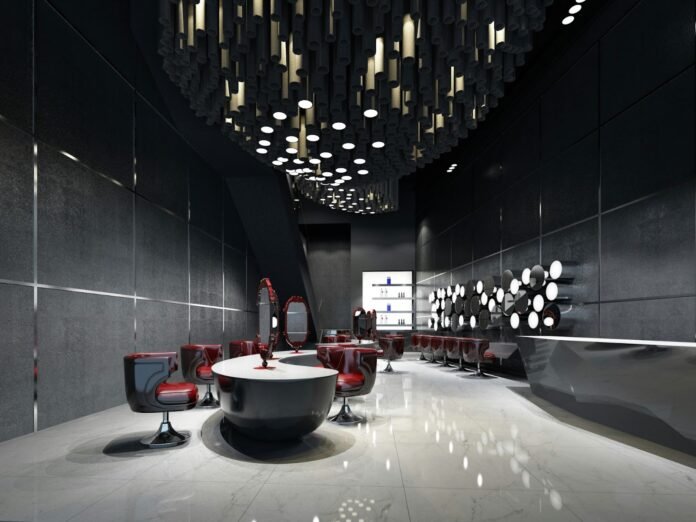In today’s experience-driven market, boutique event planning agencies are proving that size doesn’t determine success. These smaller firms are winning major clients by offering personalized service and creative approaches that larger agencies sometimes struggle to match.
“Brands are increasingly seeking authentic connections with their audiences,” event industry analyst Sophia Park notes. “Boutique agencies often excel at creating these genuine moments.”
The rise of boutique corporate event planners reflects a broader shift in how brands approach live experiences. Companies now prioritize customization and creativity over standardized approaches, giving smaller firms a natural advantage.
New York-based 23 Layers exemplifies this trend. The firm has built a reputation working with established corporations and emerging startups by bringing a boutique approach to experiential events. Their philosophy centers on attention to detail and cohesive creativity.
“The way we approach events is holistic,” explains Jessica Boskoff, founder and CEO of 23 Layers. “Every element contributes to the overall story we’re telling for the brand.”
This detail-oriented approach represents a key strength for boutique agencies. With smaller client rosters, these firms can dedicate more attention to each project. Their executives often remain directly involved throughout the planning process, ensuring consistent vision from concept to execution.
Larger agencies typically assign different teams to handle various aspects of event planning, such as account management, creative development, vendor coordination, and on-site execution. This compartmentalized approach can sometimes lead to disconnects between the original vision and the final delivery. By contrast, boutique corporate event planners often maintain personnel continuity across all planning stages. This integration helps preserve creative integrity while allowing for nimble adjustments as projects develop.
“Clients appreciate having direct access to decision-makers,” says event industry consultant Marcus Chen. “When you work with a boutique agency, you often speak directly with the people who will execute your vision.”
Technology has further leveled the playing field. Digital tools now allow smaller agencies to manage complex logistics and access global vendor networks once available only to larger firms. This technological democratization means boutique agencies can execute ambitious projects while maintaining their personalized approach.
Social media has also changed client expectations. Brands increasingly request Instagram-worthy moments and shareable content that can extend an event’s reach beyond in-person attendees. Boutique agencies have demonstrated particular skills in identifying these opportunities and integrating them naturally into event design.
“The best event experiences feel authentic rather than manufactured,” explains digital strategist Jamie Wong. “Smaller agencies often create these moments more organically.”
Budget efficiency represents another area where boutique firms can excel. With lower overhead costs than their larger counterparts, these agencies can allocate more resources directly to event execution. This structural advantage allows them to deliver premium experiences without premium price tags.
However, boutique agencies do face distinctive hurdles. Limited staff resources can create capacity constraints, making it difficult to handle multiple significant events simultaneously. This limitation requires careful planning and sometimes means limiting opportunities that stretch resources too thin.
Scale can also pose challenges for international events. While digital tools help, global productions still benefit from having team members in multiple locations. Some boutique agencies address this through strategic partnerships with firms in other regions, creating temporary alliances for specific projects.
23 Layers has employed this approach at the Cannes Lions International Festival of Creativity, where the firm produces multiple events annually. By combining its creative direction with local production partners, 23 Layers maintains its distinctive approach while accessing necessary regional expertise.
Client expectations continue to rise across the industry. Brands now request detailed post-event analytics measuring engagement, social reach, and business impact. Both boutique and large agencies are expanding their capabilities in this area, integrating data collection into event design rather than treating it as an afterthought.
The ongoing digital transformation of events presents both opportunities and complexities. Virtual and hybrid formats require new skills and technologies, areas where larger agencies initially held advantages. However, boutique firms have rapidly adapted, with many now offering sophisticated digital components alongside their in-person expertise.
Corporate event planners of all sizes must now balance multiple goals: creating memorable experiences, generating measurable results, and working within increasingly scrutinized budgets. As these demands intensify, boutique agencies’ personalized service and creative flexibility become increasingly valuable. The success of firms like 23 Layers suggests that the advantage may continue shifting toward these specialized providers. By focusing on creativity, personalization, and direct client relationships, boutique agencies are proving that in event planning, thoughtful execution often matters more than organizational size.
Apart from that if you want to know about “Casual Street Style for Every Season: Tips, Outfit Ideas, and Must-Have Wardrobe Essentials” then please visit our “Fashion” Category.






















